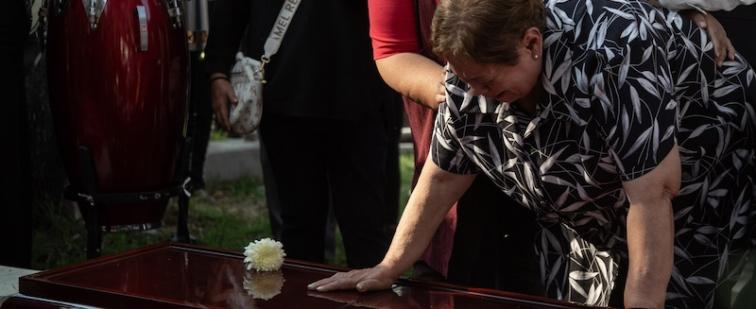Home
In December, NACLA published an open letter signed by over 100 experts on Latin America that criticized Human Rights Watch's recent report on Venezuela. In this response, Kenneth Roth, director of Human Rights Watch, says the academics' letter disseminates "unfounded allegations" by misrepresenting "both the substance and the source material of the report." Roth calls the letter "an unhelpful distraction, which ... can only serve to undermine legitimate efforts to promote human rights in Venezuela."
International observers have denounced recent activities of the U.S. Agency for International Development (USAID) and the National Endowment for Democracy (NED) as designed to overthrow democratically elected presidents Evo Morales of Bolivia and Hugo Chávez of Venezuela. A similar strategy is underway to undermine the electoral process in El Salvador by striking fear and confusion into voters before legislative and presidential elections in 2009.
This week marks the 50th anniversary of the Cuban Revolution, an opportune time for President-elect Obama to signal an end to the Cuban embargo. During the campaign, Obama promised to “turn the page and begin to write a new chapter in U.S.-Cuba policy.” Contrary to the Bush administration's policies, Obama said he would give Cuban-Americans “unrestricted rights” to visit family and send cash remittances to the island. But he stopped short on endorsing an end to the embargo.
A proposed gold mining project in northern Costa Rica has stirred grassroots opposition in this country, which has long prided itself as a world leader in "green" environmental policies. The Crucitas mine threatens two species facing extinction, and the government's approval of the project has led to a criminal investigation into whether Costa Rica's president knowingly violated local and international environmental laws.
Canada's role in the hemisphere is often portrayed by its officials as that of an understanding, well-intentioned partner. But Ottawa's aggressive pursuit of a free trade deal with the government of Colombia shows its policies toward Latin America run parallel to those of Washington, showing the same disregard for human rights and democratic accountability. In Latin America, Canada plays "good cop" to Washington's bullying.
The mainstream media is howling over Hugo Chávez's bid to change the constitution for a third term, while coverage of Colombia's Álvaro Uribe, a staunch U.S. ally, to do the same raises few, if any, questions in the media. U.S. news coverage of parallel political events in Colombia and Venezuela offers an opportunity to test the usefulness of Edward Herman and Noam Chomsky's "propaganda model," developed in their 1988 book Manufacturing Consent: The Political Economy of the Mass Media.
The mainstream media is howling over Hugo Chávez's bid to change the constitution for a third term, while coverage of Colombia's Álvaro Uribe, a staunch U.S. ally, to do the same raises few, if any, questions in the media. U.S. news coverage of parallel political events in Colombia and Venezuela offers an opportunity to test the usefulness of Edward Herman and Noam Chomsky’s “propaganda model,” developed in their 1988 book Manufacturing Consent: The Political Economy of the Mass Media.
In an open letter to the Board of Directors of Human Rights Watch, over 100 experts on Latin America criticized the organization's recent report on Venezuela, A Decade Under Chávez: Political Intolerance and Lost Opportunities for Advancing Human Rights in Venezuela, saying that it "does not meet even the most minimal standards of scholarship, impartiality, accuracy, or credibility."
A recent massacre of riders on a passenger bus was a painful reminder that violence in Guatemala is out of control. Homicide rates now surpass even those of the country's bloody civil war. Savage violence is affecting all sectors of society and is being perpetrated by a dizzying array of sources—common criminals, narco-traffickers, street gangs, and the state security forces. Sadly, another generation of Guatemalans is growing up in a society consumed by violence.











